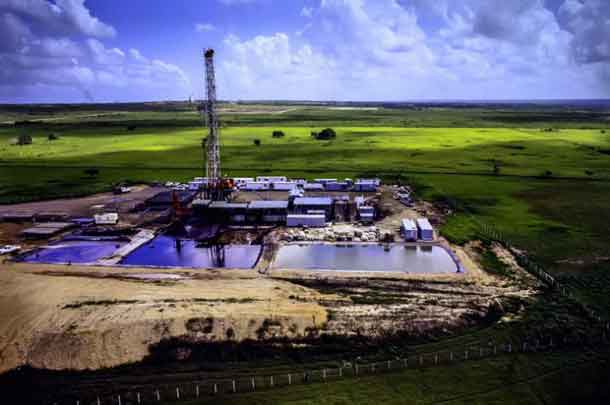Environmental groups and lawmakers are raising the alarm about the climate cost of bitcoin mining, while industry groups and proponents say it can be part of a climate solution
- U.S. environmental groups warn about the climate cost of bitcoin
- Lawmakers in New York push for a mining moratorium
- Bitcoin proponents say it could drive renewables investment
By Avi Asher-Schapiro
LOS ANGELES – (Thomson Reuters Foundation) – When China banned bitcoin mining last year, it launched a U.S. cryptocurrency goldrush, with states such as New York, Kentucky and Georgia fast becoming major mining hubs.
New York state assembly member Clyde Vanel couldn’t be happier.
“It’s a blessing that it’s happening here,” he said, pointing to the jobs the industry could create.
But Anna Kelles, a fellow assembly member, is pushing legislation that would severely restrict the power-hungry mining in New York, placing a moratorium on new mining operations that bring new fossil power sources online.
“We have an industry that in short order is going to derail our climate goals,” she warned.
The debate over the environmental impact of bitcoin mining is intensifying in the United States, with major environmental groups belatedly mounting a national pressure campaign criticizing its use of fossil fuels as the country tries to slash its emissions to meet climate change goals.
Bitcoin miners maintain the decentralized digital currency through a network of energy intensive computers – whose exact energy consumption and carbon footprint are hard to measure.
A 2021 estimate from the industry group CoinShare found that the network was responsible for less than a tenth of a percent of global emissions, while a separate report by the New York Digital Investment Group said it could reach at most 1% of global emissions by 2030.
But a study published by economist Alex de Vries, a persistent critic of bitcoin’s energy usage, in the energy journal Joul in March estimated it produced the carbon dioxide equivalent of the nation of Greece.
“We should be pushing bitcoin mining to decarbonize, just like any other industry,” said Margot Paez, a climate change scientist at the Bitcoin Policy Institute, a think-tank.
“But the reality is that, compared to other industries, bitcoin uses an insignificant amount of energy,” she said.
Bitcoin boosters say that other activities – such as running Christmas lights – consume roughly equivalent amounts of energy as the network, and that the social function of bitcoin is worth the energy load.
They also point to a few operations run on renewable energy – in particular in Texas where solar and wind farms are being brought online to power bitcoin mining.
But in places such as New York and Pennsylvania, miners have revived closed fossil fuel plants to power their work – and environmental groups have mobilized.
“We are in a climate crisis,” said Tefere Gebre, the chief program officer for Greenpeace USA at a recent press conference organized by environmental groups critical of the cryptocurrency. And bitcoin mining, he said, “is pushing us in the wrong direction at the wrong time”.
NEW YORK REGULATIONS
A law written by New York assembly member Kelles, which advanced out of the state’s natural resources committee in March, would place a moratorium on new fossil-fuel-powered bitcoin operations there.
If it passes, “New York will be signaling that it is closed for business,” said Kyle Schneps, director of public policy at New York-based bitcoin and consulting firm Foundry, which opposes the bill.
The fight over bitcoin mining in New York took off last year as residents of the small town of Torrey protested as a bitcoin mining firm took over a closed coal-fired power plant there and converted it into a natural-gas powered mine.
Environmental group Earth Justice has identified a number of other plants around the state it said could be subject to similar conversions – and legislator Kelles has gathered over 40 co-sponsors for legislation that would ban such activity.
Schneps, with Foundry, noted some bitcoin mines are driven by renewable energy, including hydropower, and that they can bring economic benefits.
His own firm has hired over 115 employees in New York, working in a range of roles from software engineering to sales, he said.
New York assembly member Vanel, who opposes the mining moratorium, worries it could drive miners away, saying lawmakers should collaborate with the industry to address any environmental concerns.
But Kelles said that without regulation to ban fossil-fuel-powered bitcoin mining, more dirty energy plants would come back online in the state, undermining its emissions reductions goals.
”Let’s put a pause on this now,” she said. “We spent 30 years getting these dirty plants off the grid.”
Scientists say global fossil fuel emissions must fall by a whopping 45% by 2030 to avoid the worst impacts of climate change, including ever-more-dangerous wildfires, floods and heatwaves.
But despite legions of emissions-slashing pledges, carbon pollution continues to rise, with the United Nations predicting a 16% hike by 2030, compared to 2010 levels, even if current government carbon-cutting plans are met.
Those on both side of the bitcoin divide agree that what happens in New York will have implications across the United States.
“When it comes to climate politics on a national scale, New York is a power player,” said Mandy DeRoche, a lawyer with Earth Justice, now suing to block expansion of the Torrey bitcoin mine on environmental grounds.
CODE FIGHT
The showdown in New York coincides with a national campaign by major environmental groups, including the Environmental Working Group and Greenpeace USA, to draw attention to bitcoin’s environmental impact.
The groups are calling for changes in bitcoin’s software code to replace its “proof of work,” protocol — which generates new coins and maintains the network by running energy-hungry computers – with a lower-emissions “proof of stake” mechanism that would reward those who already own the currency.
The campaign, which has taken out major advertisements in national newspapers, was seeded with a $5 million donation from Chris Larsen, a co-founder of proof-of-stake cryptocurrency Ripple.
“We are deadly serious about this. This problem has to be solved,” said Ken Cook, president of the Environmental Working Group.
He said the mainstream environmental movement had been slow to recognize the bitcoin mining threat but groups were now kicking into gear.
“We are on the way to a good transition” away from fossil fuels, he said – but fossil-fuel-powered bitcoin mining “could really offset that transition in a very significant way”.
Paez, of the Bitcoin Policy Institute, opposes carbon-based bitcoin mining but said critics do not understand that mining does not inherently run counter to climate goals, pointing to U.S. mining operations financing new wind and solar generation.
Gloria Zhao, a developer who works on the bitcoin system’s core software, said the mining community has “basically treated as a joke” proposals by environmentalists for changes to bitcoin software, in part because they have not been submitted through a formal mechanism.
Zhao and other bitcoin proponents say crytocurrency’s energy-intensive design is important to maintain the security and decentralization of the network, which allows anyone with access to a computer and electricity to participate.
But Larsen, who funded the environmental campaign, said as more and more mainstream financial institutions invest in bitcoin, pressure will grow on software developers to align the crytocurrency with broader environmental, social and governance (ESG) goals.
“That will put pressure on the core developers to make this change,” he said. “That’s the goal.”
Related stories:
U.S. small towns take on energy-guzzling bitcoin miners
(Reporting by Avi Asher-Schapiro @AASchapiro, Editing by Laurie Goering. Credit the Thomson Reuters Foundation)






